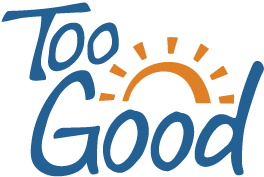
Email Maddie at maddie@foundationforwellness.com for more information.
Too Good for Drugs and Violence lays the groundwork for drug-free living through a fun and interactive journey of setting reachable goals, communicating effectively, making responsible decisions, managing emotions, and refusing negative peer pressure. Students learn how to navigate the challenges of social and academic pressures like making responsible decisions, managing stress and anger, reflecting on personal relationships, and resolving conflict peacefully. Interactive games and activities provide techniques for students to avoid participation in cyber-bullying and practice responsible digital citizenship.
Equipped with the skills developed throughout the course, students can better prepare, plan, and evaluate their choices. By differentiating impulsive behavior and thoughtful decisions and examining how goals, media, peers, and family influence their decisions, eighth graders will be better prepared to take actions consistent with their short-term and long-term goals.
Incorporating their emotional management, effective communication, and social awareness skills, students practice applying their empathy with their friends to provide the healthy qualities their friends need in a variety of predicaments in “The Buddy System.” Lessons also explore the risks and harmful effects alcohol, tobacco, THC, and marijuana have on the developing brain and body as well as the dangers associated with the misuse of prescription and over-the-counter medications.
Too Good for Drugs and Violence offers 15 50-minute lessons broken down into three units,
Unit 1 – Social Skill Development
- Setting Reachable Goals
- Making Responsible Decisions
- Identifying & managing Emotions
- Effective Communication
- Bonding & Relationships
Unit 2 – Substance Abuse Prevention
- Effects of Alcohol Use
- Effects of Nicotine Use
- Effects of Marijuana Use
- Prescription, Over the Counter, & Street Drugs
- Alternatives to Substance Abuse
Unit 3 – Violence Prevention
- Respect for Self & Others
- Conflict Resolution
- Stress Managment
- Healthy Teen Dating
- Social Media Awareness
Evidence and Research Based
Too Good is a comprehensive family of evidence-based substance use and violence prevention interventions designed to mitigate the risk factors linked to problem behaviors and build protection within the child to resist problem behaviors.
Too Good develops and reinforces a comprehensive skills framework including setting reachable goals, making responsible decisions, identifying and managing emotions, and effective communication in addition to peer-pressure refusal, pro-social peer bonding, and peaceful conflict resolution skills.
Too Good builds the basis for a safe, supportive, and respectful learning environment.
Prevention Framework
Effective prevention programs like Too Good promote skills development and educate youth about the effects and consequences of risky behaviors like engaging in substance use and violence. Because the delivery of information alone rarely changes behaviors, and because other informative or emotional appeal strategies like didactic lectures, scare tactics, alarming statistics, or infrequent or single event presentations have proven to be ineffective in reducing or deterring risky behaviors in children and youth, Too Good takes a skills-based approach to prepare children and adolescents to make healthy responsible decisions.
Too Good programs are based in sound development and prevention theory. They use a strengths-based approach that builds on strengths and wellness as part of a strategy to address risk aiming to build protective factors. Too Good programs are interactive and hands-on providing opportunities for skills building and skills application.
Targeted Risk Factors and Protective Factors
Too Good targets the following risk factors and protective factors associated with substance use or antisocial behavior in children and adolescents:
Protective factors targeted for increase
- Social and emotional competency skills
- Personal efficacy
- Exposure to school, community, and cultural norms that reject substance use or antisocial behaviors
- Increased knowledge and perception of harm of the negative effects of substance use
- Positive school connectedness
Risk factors targeted for decrease
- Poor social and emotional skills
- Favorable attitudes toward substance use or antisocial behavior
- Norms favorable toward substance use or antisocial behavior
- Peer rewards for substance use or antisocial behaviors
- Early initiation of substance use
- Physical violence
- Bullying behavior
More about Mendez Foundation.

Cancellation and Refund Policy:
Cancellations must be made within 48 hours after purchasing a ticket in order to receive a refund or reschedule. Registrants will forfeit refund if registration is not cancelled within 48 hours. Registrants can re-schedule a class one time. If registrant fails to attend the rescheduled class, he/she will not be able to reschedule, and funds are forfeited.
